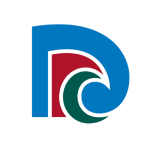Strategy to address North's marine pests
Northlanders are being asked for their views on a new Proposed Marine Pest Management Strategy designed to address the impacts of established nasties like sea squirt and potential threats from species like the Pacific sea star starfish.
Northland is particularly vulnerable to marine pests due to its extensive coastline, warm waters, variety of habitats and the high numbers of visiting international boats which can unintentionally introduce ‘hitchhiking’ pests.
Don McKenzie, the Northland Regional Council’s Biosecurity Senior Programme Manager, says marine pests have the potential to damage our tourism, fishing and aquaculture industries.
“They can also affect recreational activities such as diving, fishing and seafood gathering.”
Mr McKenzie says the NRC has developed its proposed strategy in response to a growing awareness of the threats marine pests can pose to the social, economic, cultural and environmental values of Northland’s coastal waters.
“Foreign marine plants and animals can harm the coastal environment by competing with native species for food and space or through predation just like land-based pests such as stoats, possums and gorse can affect forests and farmland.”
He says unlike on land, there is often no resident landowner to control pests in the coastal environment as it is typically public open space.
The Council’s proposed strategy identifies 15 marine pests to be managed through a variety of methods, with a further 12 species to be investigated further to assess the risks they pose to Northland.
Key approaches proposed in the strategy include:
- Increased surveillance around Northland’s coastline, particularly in high risk areas and places with high natural values like Marine Reserves
- Encouraging partnerships with other agencies/stakeholders to manage marine pests
- Allocating resources to raising public awareness of marine pests and encouraging reporting of sightings
- Assisting Northland communities, groups, stakeholders and industry to manage marine pests
Mr McKenzie says it will cost an estimated $100,000 annually to implement the Council activities identified in the proposed strategy.
‘However, these will be funded from the Council’s existing biosecurity budget, so no increase in rates is required.”
Anyone wanting to comment on the proposed strategy has until 4.30pm on Friday 20 November to do so.
The strategy can be downloaded via the NRC’s website from www.nrc.govt.nz/marinepeststrategy or hard copies can be viewed at Regional Council offices in Kaitaia, Opua, Whangarei and Dargaville.
